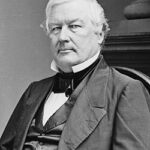The Fillmore Hungarian Revolution Decision
President Millard Fillmore faced intense pressure in 1851 regarding America’s role in European democratic movements. Hungarian revolutionary leader Lajos Kossuth arrived in the United States seeking military aid against Austrian oppression. The Fillmore Hungarian Revolution response disappointed many Americans who expected stronger support for freedom fighters. ⚠️ Fillmore chose strict neutrality despite widespread public sympathy for the Hungarian cause.
Why Fillmore Refused Support
Fillmore prioritized diplomatic stability over revolutionary assistance. He feared military intervention would violate America’s non-interference policy. The president worried about damaging relations with European powers, particularly Austria. Economic interests also influenced his decision to maintain peaceful trade relationships. 📊 Congressional debates revealed deep divisions over America’s international responsibilities.
Public Reaction and Criticism
Americans across the nation criticized Fillmore’s cautious approach to the Hungarian Revolution. Many viewed his refusal as betraying America’s revolutionary heritage. Democratic newspapers accused him of abandoning oppressed peoples worldwide. 🌍 Kossuth’s speaking tour generated massive crowds demanding government action against European tyranny.
Impact:
Immediate Political Consequences
The Fillmore Hungarian Revolution controversy damaged his political standing significantly. Whig Party members criticized his overly cautious foreign policy approach. Democratic opponents used his neutrality stance to question his leadership abilities. 🔥 Public rallies supporting Kossuth drew thousands of participants nationwide, highlighting popular dissatisfaction.
Long-term Foreign Policy Effects
Fillmore’s decision established precedent for American non-intervention in European conflicts. His neutrality policy influenced future presidential approaches to international democratic movements. The controversy revealed tensions between isolationist and interventionist foreign policy philosophies. 🌍 European nations noted America’s reluctance to support revolutionary causes with military force.
Impact on American Identity
The Hungarian Revolution debate forced Americans to examine their nation’s global role. Many questioned whether neutrality contradicted American democratic values and revolutionary traditions. The controversy highlighted growing pains of America’s emerging international influence. 📉 Fillmore’s approval ratings declined as critics portrayed him as weak and indecisive on moral issues.
